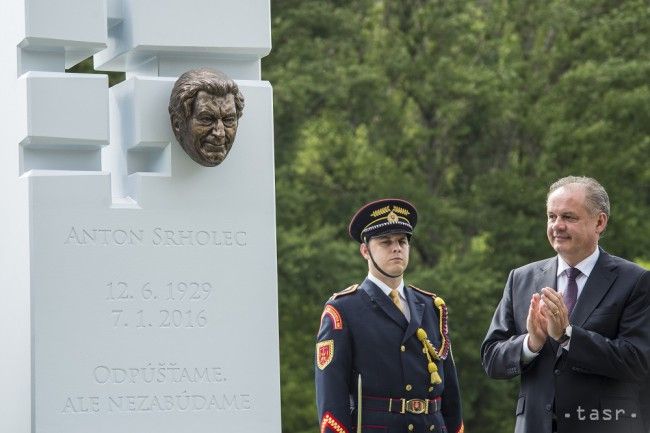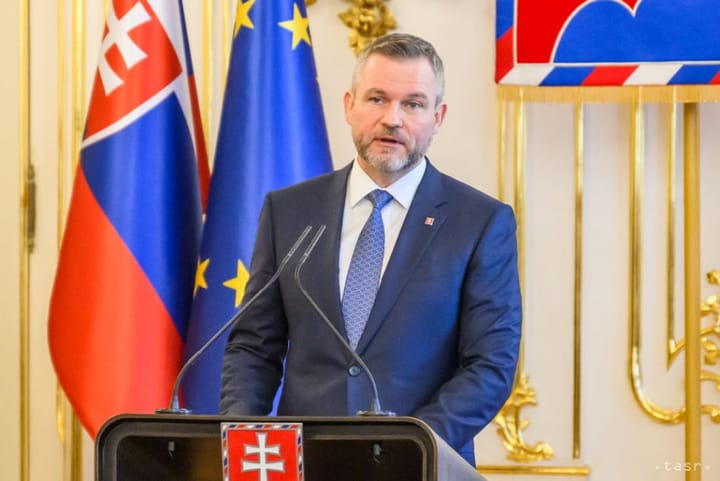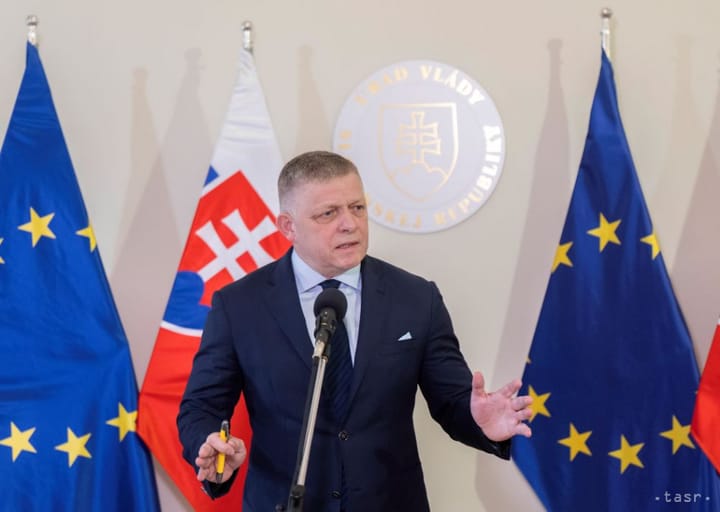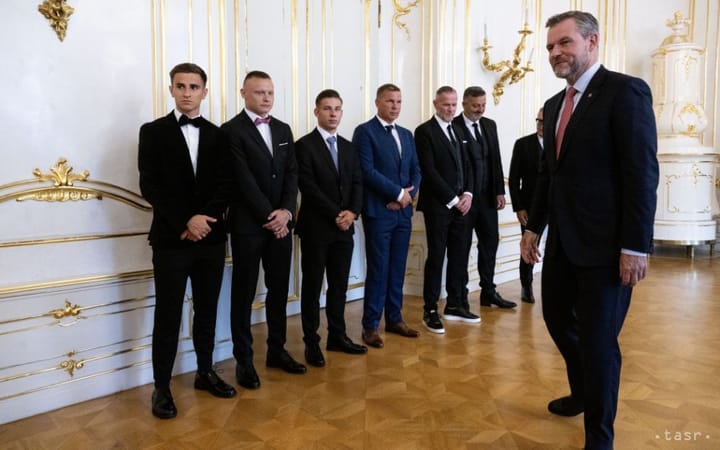Kiska Unveils Memorial to Prominent Political Prisoner Anton Srholec

Bratislava, June 17 (TASR) – A memorial to a prominent political prisoner during the communist regime, Catholic priest Anton Srholec, who died at the beginning of this year, was unveiled at Freedom Gate in the Bratislava borough of Devin near the Austrian border on Thursday by President Andrej Kiska.
Also present were Bratislava deputy mayor Iveta Plsekova, chairman of the Nation’s Memory Institute (UPN) board Ondrej Krajnak and Rotary Club member Ivan Sestak.
“It’s been eight months since we met Father Srholec here to commemorate the injustices of a regime that suppressed freedom and ruled here in the past and since we were reminded of how important it is to fight for freedom, fundamental human rights and democracy. He scolded us here for the last time in his kindly and understanding tone. It was at Freedom Gate where he kept pointing to the crimes of communism and warned also of current regimes dominated by a lack of freedom. He always saw Slovakia in Europe with other free countries. Let his memorial resound as a caring warning finger perpetually pointing to the need to preserve the cultural nature of society,” said Kiska after laying a wreath with his Guard of Honour.
Krajnak noted that the Freedom Gate memorial, which is dedicated to those who were killed when attempting to cross the Iron Curtain, was inspired by Srholec. “So we aren’t here by accident. Let’s be inspired by him in order to prevent those who used to harm us from rewriting history,” said Krajnak.
Sestak noted that Srholec was a member of the Rotary Club for 17 years. “We used to meet frequently on Mondays. He was an adornment for our club and society. He became a legend, and we sorely miss him. When he passed away, we decided to pay tribute to him with this memorial at Freedom Gate, which is his spiritual work,” said Sestak.
Srholec, who was born in 1929, spent ten years in communist prisons, mainly working in uranium mines in what is now the Czech Republic. This followed an attempt to flee the then Czechoslovakia in the 1950s. A year after the suppression of the Prague Spring of 1968, he was given a permit to leave for Italy, where he was eventually consecrated as a priest by Pope Paul VI. Returning from Rome when Czechoslovakia was still under communism, he worked in a non-clerical post in Bratislava before being transferred as a parish priest to Pernek (Bratislava region), shortly after to Velke Zaluzie (Nitra region) and eventually, in what was viewed as a punishment, to Zahorska Ves (Bratislava region). In the mid-1980s, the state took away his approval to serve as a parish priest. He came to prominence again after the Velvet Revolution, setting up a shelter for the homeless in Bratislava and serving as chairman of the Slovak Confederation of Political Prisoners. He died on January 7, 2016.



